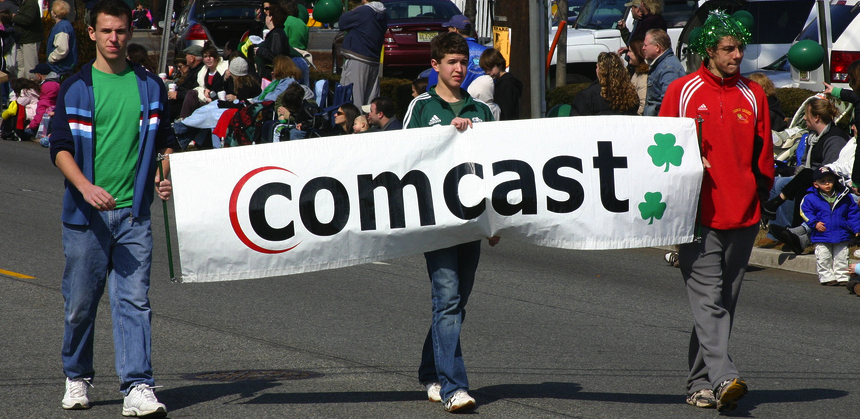Comcast To Finally Start Including (Some) Elderly In Low-Cost Broadband Plans
Today’s announcement will open up Internet Essentials, which offers 10Mbps Internet access (less than half the FCC’s 25Mbps definition of “broadband”) for $9.95/month, to senior citizens in the greater San Francisco Bay Area, where Comcast is the dominant pay-TV/Internet service provider.
In general, only families with at least one child eligible for the national subsidized school lunch program have been able to sign up for Essentials. This is in spite of the fact, that less than half of Americans over the age of 65 have high-speed Internet at home, and only 25% of those seniors with household incomes below $30,000 have home broadband.
When Comcast was still trying to acquire Time Warner Cable, the California Public Utility Commission suggested that the company, which would have controlled most broadband and pay-TV service for San Francisco and Los Angeles if the merger had succeeded, open up Essentials to include all low-income households.
But Comcast claimed that the CPUC’s suggested penetration rates and time frames for adoption “are simply unattainable under market conditions, especially with populations that have been slowest to adopt broadband,” without acknowledging that maybe low-income Americans have been slow to adopt broadband because it’s out of their price range.
San Francisco will be the first major test of Essentials expansion. Comcast recently dipped its toes in the water by allowing the elderly of Palm Beach County, Florida, to sign up.
In today’s announcement, Comcast made much of its sizable investment in Essentials, noting that since 2011 it has invested “more than $240 million in cash and in-kind support to help fund digital literacy and education initiatives.”
That’s nothing to scoff at, but it’s not much more than the $200 million each that Comcast recently invested (over the course of a single week) in BuzzFeed and Vox Media.
Meanwhile, Comcast’s hometown of Philadelphia is also one of the poorest and worst-connected major cities in America. And even though Comcast is going through the process of renewing its pay-TV franchises with the city, it’s not been included in either the Essentials expansion or Comcast’s plan for high-speed fiber service. San Francisco is getting both but a rep for Comcast says there is no specific timeline for Philadelphia.
Critics of Comcast say that Essentials is heading in the right direction by including senior citizens, but that more can be done by the company with a market cap of $150 billion.
“Piloting programs for seniors is a great start — and shows that the advocacy of communities in California and across the country to expand internet as a human right is working,” says Hannah Sassaman, of Philadelphia’s Media Mobilizing Project. “Comcast should be congratulated for expanding the program. But seniors and all people shouldn’t have to depend on charity programs for basic access to the internet in this day and age.”
Sassaman points to the current lack of broadband competition in the country, noting that companies like Comcast may not have an incentive to offer affordable programs if consumers don’t have other options. This is especially true for lower-income Americans, who often live in neighborhoods that are the last to see network improvements or new competitors.
“Without real competition and choice in our communities, millions are still left on the wrong side of the digital divide,” she explains. “Comcast has spent millions trying to block competition and our right to communicate in our cities, state capitols and in Washington. Unless we get meaningful competition in our broadband markets today, Comcast needs to remove all other barriers to entry for every low-income consumer, and commit to increasing speeds and decreasing costs for the millions on the wrong side of the digital divide.”
Want more consumer news? Visit our parent organization, Consumer Reports, for the latest on scams, recalls, and other consumer issues.


